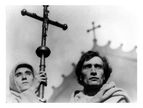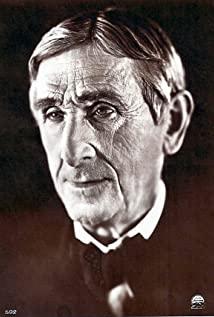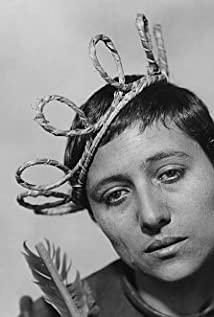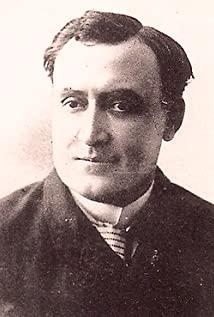"When my God-given mission is complete, I'll redress like a woman." "What about the great victory," "My martyrdom!" "And your sentence," "Death!" for great works. Gnosticism can be used to read and write a paper.
So next I will use Jonas' "Gnosticism" to interpret this film, probably the content should be a small paper.
"We are witnesses to this amazing drama, a young pious woman against a group of Orthodox theologians and powerful judges."
Symbolism of Joan of Arc: The concept of "life in a foreign land" is one of the more impressive word symbols we encounter in Gnostic discourse... Stranger is from elsewhere and does not belong here. To those who belong here, the stranger is an outsider, unfamiliar and incomprehensible; and to those who have immigrated here, the world here is equally incomprehensible, like being far from home. foreigners. So here the outsider suffers, alone, helpless, ununderstood, at a loss in this dangerous situation. Pain and homesickness are part of the fate of outsiders. He who does not know the way of a foreign land wanders about in disorientation; and if he is not familiar with the way of a foreign land, he forgets that he is an outsider, in another sense, by succumbing to the temptation of a foreign land. Lost and estranged from his own blood, he became "the son of this house". This is also part of the fate of the Stranger. When he leaves the self, the pain disappears, which is the culmination of the tragedy of the outsider. Recalling himself as a stranger, recognizing what this place of his own exile is, is also the first step of return; the reawakened homesickness is the beginning of return. These are the "painful sides" of being in a foreign country. - Jonas, "Gnosticism"
Our text above can clarify the image of Joan of Arc, a man who was exiled to a foreign land, the "lonely vine". "Soul of a foreign land" etc. apply to her state, while "foreigner" applies to the messenger of the world of light, and it applies to her at the same time. Why did Joan of Arc think she saw miracles and thought she was higher than those theologians and judges. The reason is very simple, the stranger has superiority, his estrangement means nobility, he is a messenger exiled from the world of light to this sad world, she will eventually realize her state, and save herself, so as to ascend to the world of light , "That's my innate mission", Joan of Arc was superior and painful when she said this, her depravity, experiencing the lower world is inevitable and superior, her mission is metaphysical Saved, but she will feel lonely, resisted, and her mission cannot be successfully completed. Just as the Orthodox theologians and judges have made things difficult for her, and even destroyed her body, she can feel her loneliness, sadness, and helplessness. She can only survive in this degenerate darkness.
As a Gnostic poem says: Once she has stepped astray in the labyrinth of sin, the unfortunate soul will never find her way out... She wants to leave the chaos of suffering, but she does not know how to escape. So Joan of Arc is so miserable and helpless in the movie. Because she knew she had to be saved, she had to get out of this world, but couldn't find a way out, the road to salvation seemed to require an endless sojourn, and only through such a long and laborious road, with memory loss and recollection, could she achieve her fate.
Symbolism for theologians and judges: "numbness, lethargy, intoxication". These emotional categories can reflect Joan's experience. "They persuaded me to drink wine by trickery, and gave me their flesh to taste. I forgot that I was a prince, and served their king. I forgot the pearl my parents sent me for it. Because of their kindness Hospitality, I sank into deep dreams" - "Song of the Pearl" Thomas Acts This metaphor expresses Joan of Arc being abandoned in this world, where people are not only in sleep, but also "loved" "Sleep", they have given themselves up and let themselves be in drowsiness and intoxication, and if Joan of Arc needs to save herself, it must be in a state of active confrontation. Into the vortex, let them forget their real existence, is to make her a child of this world.
"Ruha and the planets began to devise Xia's plan, saying: 'We will trap Adam, seize him, and let him stay with us in Tiber. We want to embrace in this world, establish a fellowship in this world, we will use thorns and sings to trap her here and keep her from leaving us. ” So the image of the theologian and the judge is easy to understand, they are the driving force to keep Joan of Arc in the dark, they try to make Joan of Arc fall asleep, indulge in this dark world, they keep using the saints, and other Things tempted Joan of Arc and asked her about the holy signs she had seen, just to make her forget her mission, get lost in the senses and suffer, and be tricked by death.
Thiel: "Earth" and "strong earth" in the "Old Testament" are used by the Mandaists to name the world on earth, which implies lowliness and corresponds to the purity of the divine world.
Joan of Arc's state of existence—fallen, submerged, imprisoned: There are multiple representations of the way life entered into this present state of misery, but there are more violent images of the fall: soul or spirit, as A part of the original life or light falls into the world or the body. The Fall is the state and destiny of the individual soul in the world. The example of Mandapa is sufficient for this. "Who brought me from the place where I lived, where my parents raised me, to this place of captivity?" "Why did you take me out of my place, imprison me, in this stinking body? "To be thrown is not just a description of the past, but it is also a characteristic of the present state of life determined by the past. So life asks: "Who cast me into the misery of this world, and who sent me into the darkness of sin?" She pleads again: "Rescue me from the darkness of this world, Go to where I was thrown out."
This can easily be combined with Joan of Arc's several pleas in the movie. In my opinion, Joan of Arc is not begging not to be burned at the stake, but to beg for her own state of existence, for a quick release and an end Fallen and imprisoned fate in this dark world. And she had to put on an unclean coat and become a stranger among strangers she was not familiar with. "I hid myself in the presence of Seven, compressing myself and presenting myself in the form of the flesh." This is actually a paradox. Putting on unclean clothes made him a depraved person in this world, and to some extent let him They are at risk of intoxication and lethargy, unable to protect themselves, but they will be recognized if they do not do so, making them intoxicated with themselves, becoming self-alienated, and trapped in this world forever, this is the most daring and most successful conspiracy.
Symbolic Significance of Miracles - A Call from Outside: "A Utra called from outside and taught Adam this man... Standing at the gate of the worlds at Kusta (Truth), he raised a Question, this is the call of the Mandahay... He stands on the outer edge of the worlds and calls to those he chooses. The voice of the one who transcends the world penetrates the walls of this world and brings his call to the inside. That's the call from another world." "One call came, enlightening all calls."
Utra: The name of a divine being, comparable to the angels and archangels in Judaism and Christianity. Utra literally means "wealth", "abundance", indicating that these beings are outflows from a full God (I feel influenced by Neoplatonism)
Miracles are actually calls from the "call of life" or "great life", and the Uthra will issue the call of life. We have already seen through the above that strangers put on foreign clothes, and are tempted by the sleeping people of this world, sleeping in the darkness of this world, and don't even know their own mission, but the miracle is as a great father, another The great call of the bright world enables her to understand her mission, which is to save herself. "A call resounded throughout the world, and the Radiant departed from every city. The Mandahai revealed himself to all the children, and saved them from darkness to light." It was the call of miracles, It gave Joan of Arc hope, became a saint, escaped the darkness of this world, and was saved to the light.
"When Adam heard these words, he groaned and cried... Utra said: Adam, keep silent!... Rise, rise, worship the great life, surrender to him, and life will be His savior. Once life becomes your savior, you will rise and see where the light is." Joan's response to the call, like Adam's, was to receive it with joy and gratitude, even as she bemoaned her fate . "He who has North in this way knows where he came from and where he is going." Joan of Arc clarified her mission in the call and knew her way back, so she was happy to see the bright place and receive her own Destiny, and rising, became the Savior.
The pictorial meaning of Joan of Arc's finale: "Adam heard and believed...Adam gained the truth...Adam gazed up hopefully, and ascended..." I would like to sum up Joan of Arc's finale again with this sentence Appropriately, she was burned, but it wasn't a tragedy, "You burned a saint!" the people roared at the end of the movie, all the people were crying, but I think Joan of Arc removed those temptations at the end , no longer slumbering in this dark world, returning to the light, and rising towards the highest hometown, her faith, knowledge and hope have been combined, her soul has been transformed, and her life has been renewed. So, I wanted to end with a Mandanese poem.
"I saw my Father, I knew him, and I made three petitions to him. I asked him to be gentle, with no rebellion in me. I asked him to have a strong heart that could endure big and little things. I asked him to be flat. the way, where I can ascend and see the light... I go to find my soul, what do the worlds mean to me? I go to find the truth, she stands on the edge of the worlds." I can imagine Joan of Arc's The soul kept rising, stood on the edge, and found her hometown.
View more about The Passion of Joan of Arc reviews











